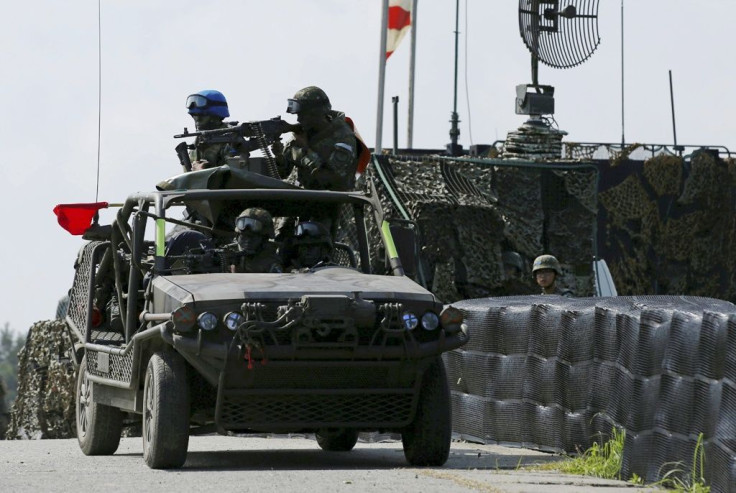China Could Invade Taiwan 'Before 2025,' Overall 'Goal Is World Domination': Lt. Gen. Boykin

A former defense official suggests that China could likely invade the self-ruled island of Taiwan "before 2025."
In an interview with Fox News, retired Lt. Gen. Jerry Boykin, a former defense undersecretary during the Bush administration, said China could sneak an attack on Taiwan while the U.S. is in the midst of its election season in 2024.
Boykin argued that the year would be a "vulnerable period" for the U.S. as it grapples with politics.
"I think that this is a time when XI and the Communist Party in China feels (sic) like, 'If we're going to make a move on Taiwan, it probably ought to be done before 2024 or 2025, when they have the next election,'" Boykin said.
"Because right now they see us as weak and they should, I think, exploit that if they're serious about going for Taiwan. I don't want them to do that, but I do see it as a vulnerable period for us," he added.
Boykin said China's possible invasion of Taiwan is part of their larger goal of world domination as they attempt to challenge the U.S.'s presence in the Indo-Pacific region.
"I think the big objective is to take Taiwan. I don't think they want to get bogged down anywhere else in any kind of conflict until they have gone after Taiwan first. Their overall goal is world domination," Boykin said.
Boykin's assessment adds to the growing concern of the U.S. about a possible Chinese-led conflict in the Pacific.
William Burns, the director of the Central Intelligence Agency (CIA), unveiled an intelligence report that Chinese President Xi Jinping had already tasked the People's Liberation Army to begin the preparations for a possible Taiwan invasion by 2027.
However, Burns noted that Xi hadn't finalized whether to proceed with an invasion of the island in 2027 or in other years.
Wisconsin Republican Rep. Mike Gallagher, the chairperson of the House Select Committee on China Competition, warned the Biden administration that it is losing time to prevent a Chinese attack on the island, saying, "We're in the window of maximum danger right now."
Gallagher suggested that the U.S. should put a "more sensible force posture" in the Indo-Pacific region and become less economically dependent on China to deter any attempts to invade Taiwan.
On Monday, Taiwan vowed not to succumb to "repeated provocations" from China, as their rival neighbor continues to intimidate the island through military incursions.
Taiwan's Defense Minister Chiu Kuo-cheng said the island would take a "peaceful and rational approach" to China, Reuters reported.
However, Chiu said the Taiwanese forces are ready to fight when China escalates its tensions with the self-ruled island.
Earlier this month, Taiwan reported multiple incursions of Chinese military aircraft in its air defense identification zone (ADIZ).
The Taiwanese Ministry of Defense said at least 19 Chinese J-10 warplanes had entered the southwestern part of the island's ADIZ.
The incident forced Taiwan to mobilize its armed forces and respond to the monitored Chinese aircraft.
In February alone, Taiwan monitored 325 Chinese air incursions and 112 naval ships around the island.
China dramatically ramped up its pressure campaign against the island last year, sending 1,727 warplanes above Taiwan's airspace and launching multiple major military exercises across the Taiwan Strait.
China-Taiwan relations had further deteriorated when former House Speaker Nancy Pelosi visited the island last August to showcase the U.S.'s commitment to defend its ally from any Chinese attacks.

Related Articles






